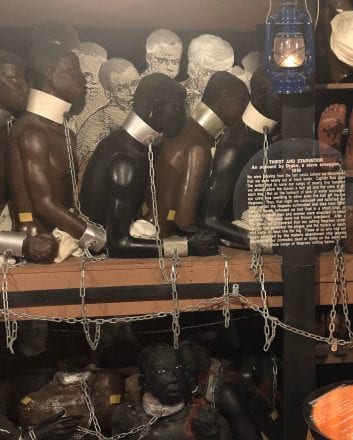Recently I brought my oldest two daughters to Montgomery and Selma Ala., on a civil rights tour with RISE (Ross Initiative in Sports for Equality) and the Faith in Politics Institute. We joined a group of senators, representatives, faith leaders, journalists, athletes and others as we visited key locations in the civil rights movement including Dexter Avenue Baptist Church, the Rosa Parks Museum, and the civil rights memorial and heard first hand from the voices of the movement. This 53rd anniversary weekend of Bloody Sunday culminated in a march of our own across the Edmund Pettus Bridge alongside congressman John Lewis, who was savagely beaten along with many other men and women as he led that peaceful demonstration. That Bloody Sunday and the ensuing Selma to Montgomery march for voting rights with Rev Dr. Martin Luther King Jr became a catalyst for the passing of the Voting Rights Act of 1965.
It’s important for Kirsten and me to teach our children about the history of our nation, our people and the social issues we have faced, and are still facing today. Since our girls are going through this time period and topic in their homeschool curriculum, we thought it would be a perfect experience for them to partake in.
When it comes to racism, I’ve heard all sorts of words thrown around. I’ve been called many different things and seen those I love called many horrible names just because of the color of their skin. More damaging than words though are the lingering results of systems that perpetuate inequality and oppression. As people, we embody our family trees; I understand what my father and his father experienced growing up. Though we live in a great country and have made a lot of progress, inequality still exists and there are a lot of things we could be doing better as a nation.
History gives a context for the present. What happened yesterday, 50 years ago and 100 years ago makes a difference in our lives today. When we don’t take the time to learn about those times, it makes it hard to understand the way people feel in the present. It’s so crucial for us all to take the time to understand and relate to one another, validating the feelings and viewpoints of people from different backgrounds and family history.
This is why I bring my 7- and 9-year-old to these events. In Baltimore, we recently visited the Blacks in Wax Museum. Created as America’s first Black History Wax Museum it highlights the lives and contributions of people of African descent from ancient history to the present. This collection of poets, politicians, inventors, entertainers, lawyers, and lay people was inspiring and enlightening. But we also saw figures of men women and children shackled and fighting for survival during the middle passage. There were groups of wax women figures huddled in a separate area of the ship, where they waited for the crew to come down and sexually abuse and assault them. There were plaques retelling what was going on as well as the recollections of slave ship captains. It was very intense.
We want to expose our children to the realities of history and we want to be the ones who are there to answer their questions. This is what happened in black history; this is part of who we are. It’s our job as parents to feed this information to them in a way that’s constructive and yet real. We are responsible for what they know and how they understand it.
Black people have been marginalized for many years and treated as second-class citizens. We all know people close to us who’ve gone through this firsthand. But it can become very dangerous if we react in anger, animosity and bitterness as a result. These are natural reactions that should arise in us toward these things, but we should not let these emotions control us or cause us to act out. This is our history, but how can we live in light of it? How much more should we try to accomplish because of the hard work our people went through to give us a better life? Their strength, resilience and courage many times in the face of certain death empowers us to carry on such a proud legacy of survival and achievement.
We want to teach our children that we’re no better than anyone else because we are “peach”, “brown” or any other color; we all need the forgiveness of God. How dare I think myself any better than anyone else? My hope is that my kids, as well as I, continue to gain a proper perspective of our own humanity — how fallen and yet how loved we really are. I also hope that because of their understanding and appreciation for our history, they will be grow to be leaders willing to serve the voiceless and stand for what is just and true.
— Benjamin Watson, Baltimore Ravens tight end
The Increase, part of the Sports Spectrum Network, is a community of Christian pro athletes sharing their personal stories of the decrease of self and the increase of Christ (John 3:30). Visit TheIncrease.com for more stories and videos.




